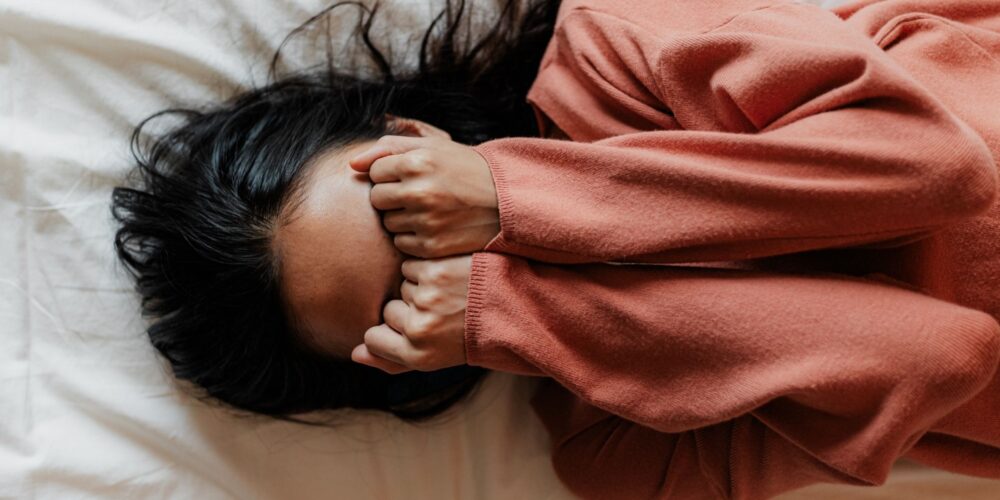Disclaimer: ♡ As an affiliate, I may earn money or products from the companies mentioned in this post. I only recommend products or services that I use and trust and that will be valuable to you. ♡ :
Everyone experiences the feeling of anxiety from time to time. Before taking a test, making a relationship or career proposal, or some crucial life decision, we tend to feel nervous, which is quite normal. Day-to-day events can also evoke feelings of anxiety. We may worry over something on the news or whether a loved one would come down with a virus. It is not unusual to feel a knot in your stomach or feel uneasy when faced with these uncertain situations. Feeling nervous can be helpful in that it prepares us to adapt to new conditions and can even aid performance. However, if these supposedly normal feelings begin to interfere with your daily activities, it may be time to consider whether what you have is a medical disorder.
What Is Anxiety?
Anxiety is a mental health disorder that affects how people deal with their emotions leading to physical symptoms. Significant indicators include irrational unease, fear, worry, panic, and nervousness. Anxiety affects individuals in different ways, and some people might also experience intense perspiration and palpitation depending on the severity of their condition.
Anxiety disorders are pretty prevalent, and over 31% of US citizens will battle an anxiety disorder in their lifetime. More women than men receive anxiety disorder diagnoses. The incidence of anxiety varies by age, and the majority of diagnoses occur among adults aged 18 to 44. Most cases of anxiety disorders go undiagnosed, and less than 40% of people with the condition get medical treatment.
Most people cannot tell whether what they’re experiencing is normal or a disorder, so they often refrain from seeking help. Some others may try to resist those feelings of anxiety, thus triggering a negative feedback loop, causing them to become more anxious. Worrying about anxiety symptoms can also make the situation worse.
Types and Symptoms of Anxiety Disorders
The American Psychiatric Association (APA) groups anxiety disorders into six classes:
Generalized Anxiety Disorder
Generalized Anxiety Disorder (GAD) is a chronic state of worry and tension about nonspecific issues, people, or things, even when there is no real reason to worry. It is the most common form of anxiety, and people who have this condition can often not point to the cause of their anxiety. Symptoms of GAD include:
- Restlessness
- Sleep difficulties
- Inability to focus
Panic Disorder
Panic disorders come with brief but intense, sudden panic attacks. The anxiety from panic disorder is usually the most extreme and often triggered by a frightening situation or something the individual dreads. They arise and escalate quickly, usually peaking after some minutes, and an attack might last for hours in some cases. Symptoms of panic attacks are:
- Heart palpitations
- Chest pain
- Feeling of choking
- Sweating
Specific Phobia
Specific phobia is an intense, often irrational fear of a particular object or situation. Some specific phobia causes may be legitimate, for example, the fear of heights. But the intensity of fear often does not match the event or object. Individuals with a specific phobia may admit the irrationality of their fear but will still be unable to control their reaction to the situation. Conditions that may trigger specific phobia include:
- Blood
- Heights
- Spiders
- Snakes
- Sea travel
Agoraphobia
Agoraphobia is the fear of being trapped in a place where it would be difficult to get help. This condition may manifest as fear of environments such as:
- Elevators
- Enclosed spaces
- Public transport
- Open spaces
- Crowded events
Social Anxiety Disorder
Social anxiety disorder is a fear of negative judgment in social settings. The person has an irrational worry about doing something wrong or being embarrassed in public. This condition may manifest as:
- Stage fright
- Fear of intimacy
Separation Anxiety Disorder
Separation Anxiety Disorder is a heightened fear of being separated from a place or person that was a source of safety. This condition is common among kids leaving their parents or homes for the first time. Older individuals who have a history of painful separations may also have this disorder. The symptoms of this condition are similar to those of panic disorder.
Treatment of Anxiety
Treatment of anxiety is usually a combination of anti-anxiety medications, psychotherapy, and lifestyle modifications. According to community members’ reports medications are generally the most effective treatments for anxiety disorders. Drugs classes prescribed for anxiety are benzodiazepines, beta-blockers, and antidepressants.
Psychotherapeutic procedures like CBT and exposure therapy help patients recognize and confront the negative thought processes responsible for their anxiety.
Lifestyle Changes for Handling Day-to-day Anxiety
Individuals can also deal with daily manifestations of anxiety by adopting some of these lifestyle changes:
Daily Exercises
Exercises provoke the release of endorphins that increase happiness and reduce worry. Regular workouts also improve the flow of blood, nutrients, and oxygen to the brain. Working out for at least 30 minutes each day improves your overall wellbeing making you less likely to become anxious.
Eating Right
A healthy diet stimulates the brain to release the right balance of chemicals required for optimum functioning. Caffeine-containing food and drinks exacerbate anxiety, so you want to cut it out from your diet.
Get Enough Sleep
Not sleeping well can be a factor in anxiety cases. Creating and sticking to a steady bedtime routine can help you feel relaxed and less anxious when you wake up. Let your doctor know if you cannot get enough quality sleep.
Manage Stress
Stress is a significant precursor for anxiety and many other mental health conditions. Learning and engaging in stress management activities like mindfulness, listening to relaxing music, deep breathing, and meditation can help you feel relaxed and less anxious.
Journaling
Keeping an anxiety journal helps you figure out what precipitates your symptoms and your reaction to them. A journal is a great way to find out the anxiety management techniques that are most effective for you.
Seek Counseling and Support
Talking to someone from time to time about your feelings can also help. Joining an anxiety support group online or physically can also help you feel better.
Final Thoughts
Anxiety disorder can make it challenging to get through the day and severely impacts productivity. The unending worries leave you tired and unable to accomplish much. So, it is crucial to seek help quickly by consulting your healthcare provider, who will examine you and develop a suitable course of treatment.





This was really helpful to read; I am slowly making progress with my anxiety and dealing with it more effectively. Thanks for breaking down all this information; it’s good to know there is support out there!
This is a great overview of anxiety, what generates it, and what can help us manage it. Journaling is a good way to increase awareness of our emotions. I appreciate and I’m thankful for your piece. Thank you for sharing!